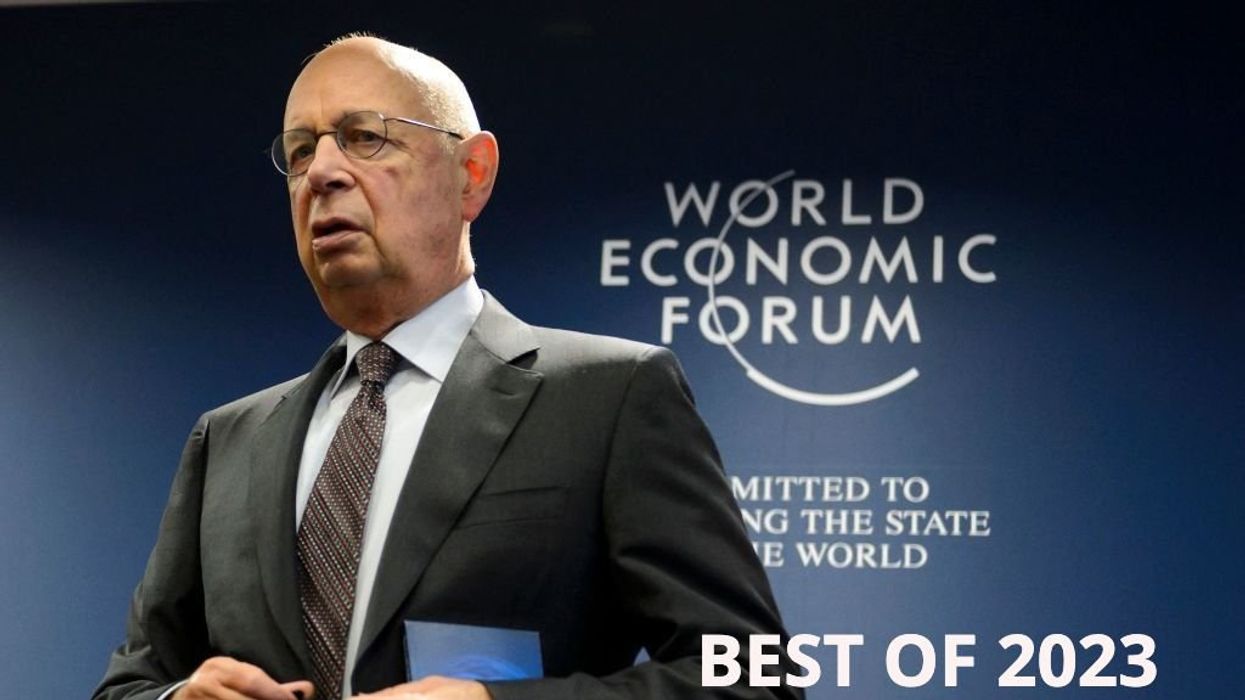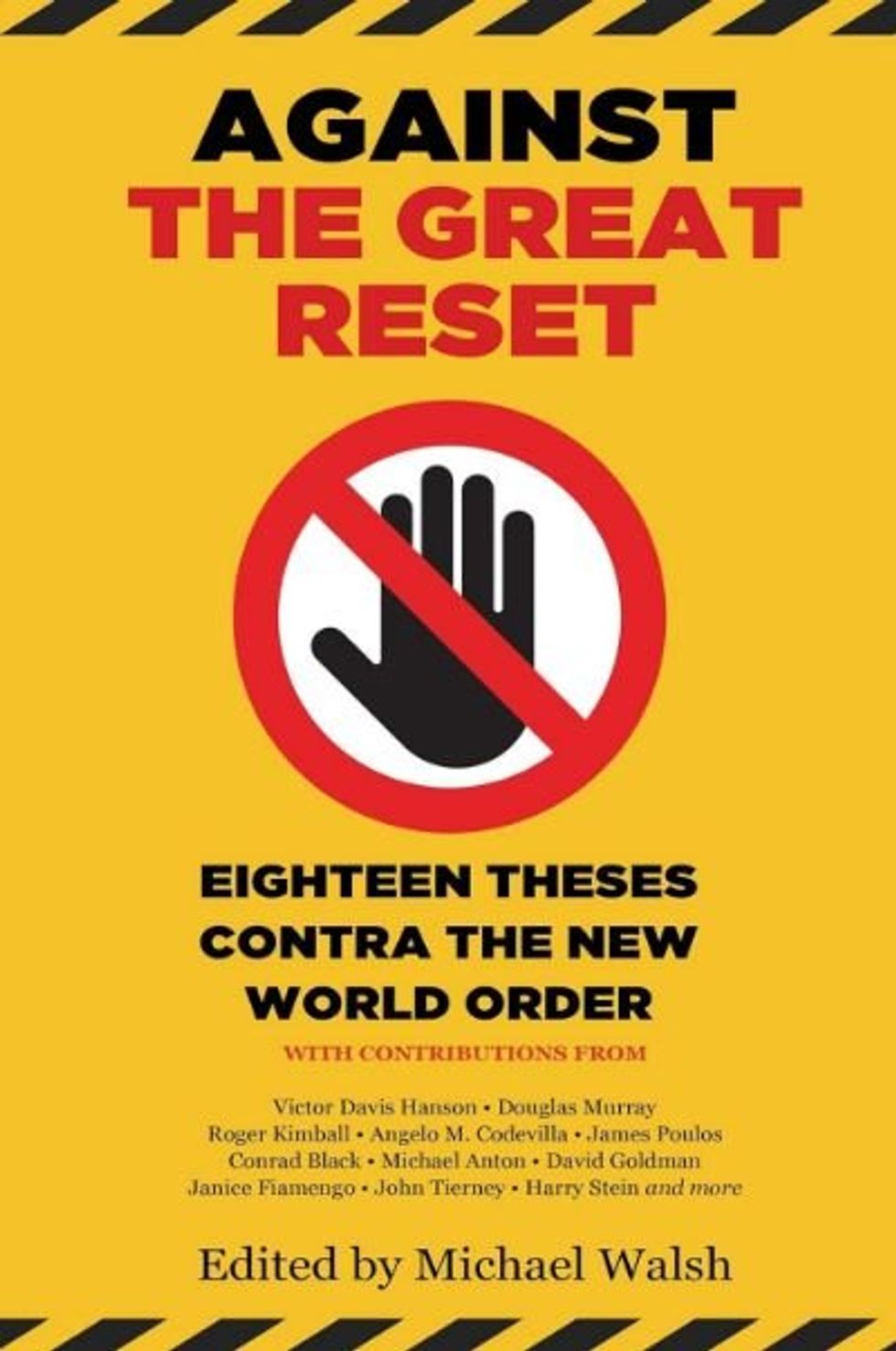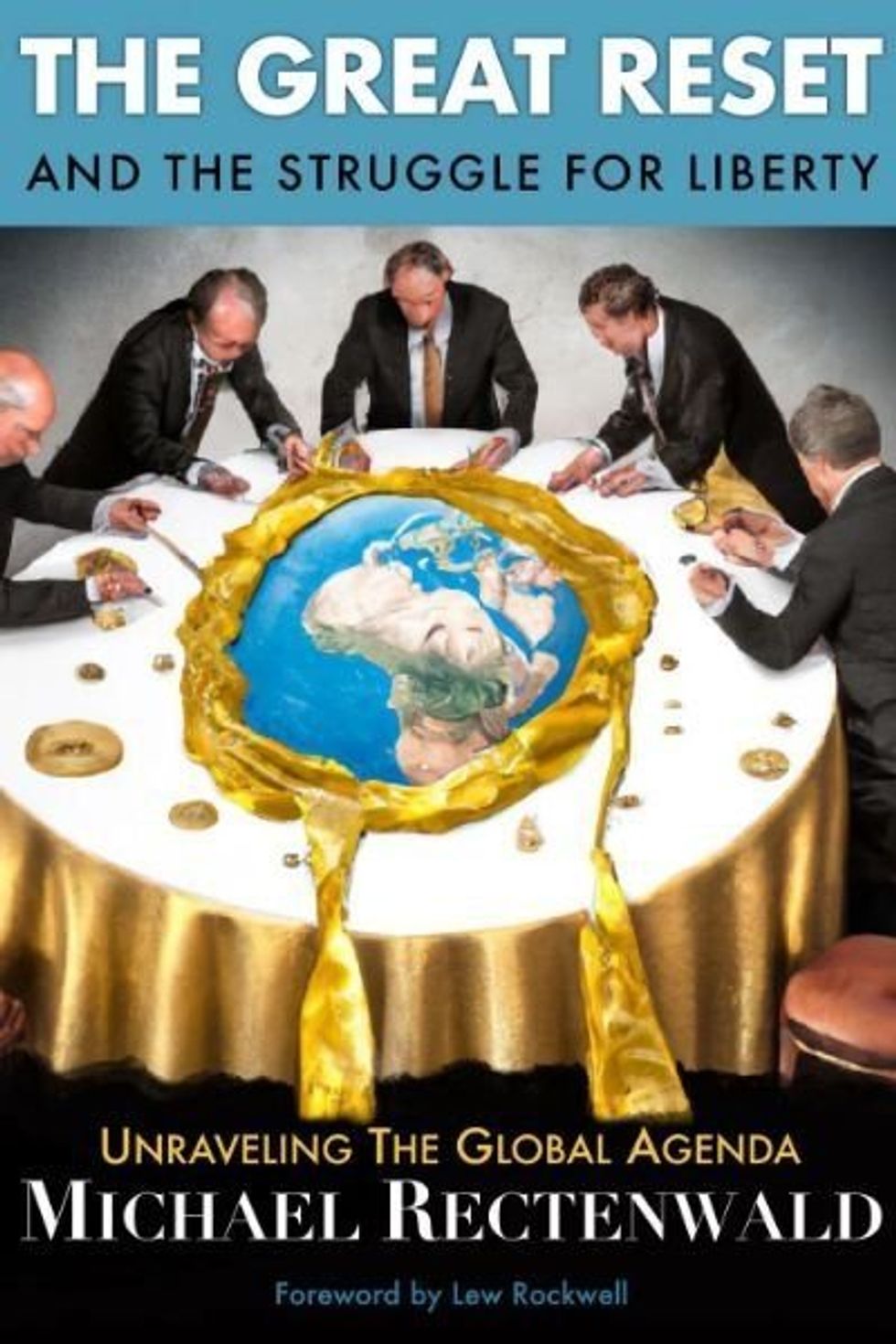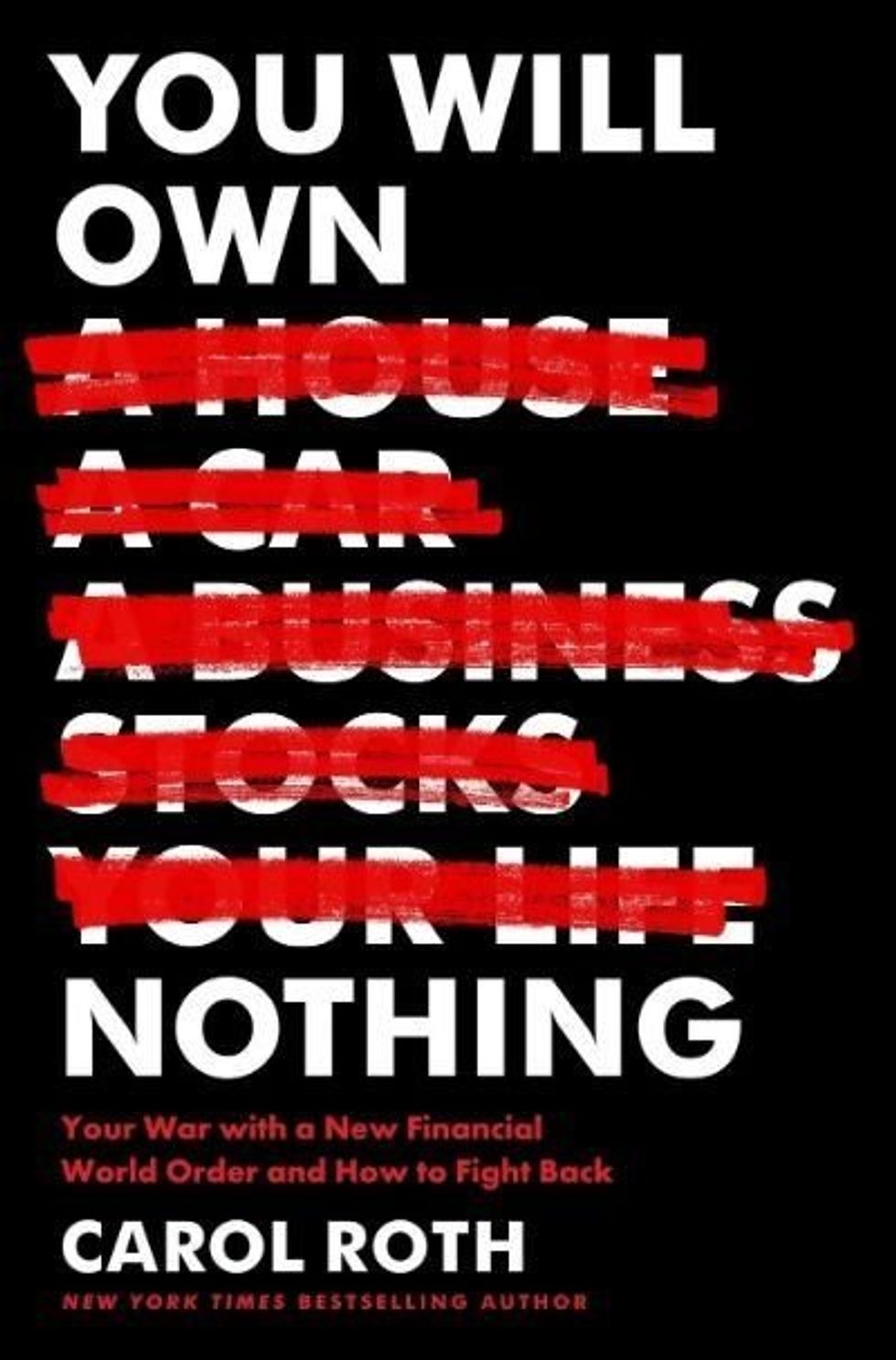
FABRICE COFFRINI/Getty Images

What was once a “conspiracy theory” is now in the open, and the world's financial future hangs in the balance. Globalists and multinational corporations are building a financial network to control every aspect of our lives. With this agenda, couched in corporate jargon and terms like "stakeholder capitalism," "diversity, equity, and inclusion initiatives," and "carbon credits," they ensure you will own nothing in the future “and be happy.” Note the use of "you" and not "we."
These books are a superb introduction and showcase invaluable research and strategies for how people can resist.

In Michael Walsh's tour de force of a book, he brings together incisive viewpoints on the Great Reset from eighteen renowned writers and journalists. Victor Davis Hanson delves into the historical backdrop of the World Economic Forum’s objectives, shedding light on why U.S. politicians defend these policies. Michael Anton unravels the links between woke capitalism and its socialist roots. Return’s own James Poulos highlights the role of Big Tech in regulating speech and the spiritual components of this battle. David Goldman juxtaposes the WEF's vision of a fourth industrial revolution with China's ambition to helm a post-Western era. These essays form a comprehensive critique.

Rectenwald explores the multifaceted components of the Great Reset, spanning its proposed economic structure, the intricate history of the WEF, and the population management principles championed by the WEF and its global allies. The book also unpacks the alarmist views on climate change, examines the advanced technologies underpinning the fourth industrial revolution, and touches upon the controversial topic of transhumanism. Concluding with a strategic nine-step blueprint to counteract the Great Reset, which Rectenwald calls the “Grand Refusal,” this book is more than just speculative. It's a meticulously researched exposition that demystifies the underlying tenets and consequences of the Great Reset initiative.
A global plot involving influential bankers, corporate magnates, and government officials; secretive gatherings in the Swiss Alps; and a call to overhaul societies worldwide — the Great Reset seems a mere step away from being the storyline of a James Bond thriller.
Yet the Great Reset isn't a tale spun from imagination. It represents a potent initiative steered by the world’s corporate and political elite, aiming to overhaul the global economy through banking systems, state schemes, and various social and governance metrics. Should their vision come to fruition, we would witness a massive shift of economic and societal control toward multinational corporations, global bodies, financial institutions, and the United Nations.
In The Great Reset: Joe Biden and the Rise of 21st Century Fascism, Beck combines humor and engaging narratives to shed light on the realities of the Great Reset. He connects the dots using nearly two decades of meticulous research on authoritarian trends and their transformative aspirations for the United States.
To counteract the Great Reset, it's imperative first to grasp its full scope and implications. Beck’s book stands as a crucial guide, illuminating the intricacies of this ambitious global endeavor.

When Carol Roth stumbled upon the World Economic Forum’s 2030 projection, "You’ll own nothing and be happy," she couldn’t quite believe it was true. But as she delved deeper, she discovered a convergence among various businesses, governmental entities, and global leaders toward a seemingly utopian future: one where everyone has their needs met yet ownership is a thing of the past.
Recent shifts, from diminishing home and car ownership to widespread inflation and government expenditure, point toward a new paradigm in which Western citizens are progressively owning less, either by choice or circumstance. This scenario plays into the hands of the wealthy elite, further cementing their stronghold and barring the majority from climbing the economic ladder.
In You Will Own Nothing, Roth unmasks the intertwined ambitions of entities ranging from Wall Street, global governments, and organizations to socialist enthusiasts and significant corporations like BlackRock. These agendas weaken the dollar's influence, hindering countless Americans from truly mastering their finances. Roth argues that owning less impoverishes you and curtails your freedom. Her book emerges as a crucial road map to safeguarding one's hard-won assets for future generations.
It’s hard to “recommend” this book exactly; it’s written in a banal and turgid style and reads like an extended LinkedIn post. However, it is essential to read literature like this if for no other reason than when your friends dismiss the Great Reset as a conspiracy theory, you can point out that the World Economic Forum and global elites are no longer hiding their intentions. It is a book filled with corporate-speak and jargon, but here and there, the mask drops, and you understand how evil this new system they want will be. Maybe borrow this one from the library rather than give any more of your hard-earned dollars to these people.